I HATE manual billing
So, you bill for the service, but then it takes 800 years to actually get the cash (at least, it feels that long). When coding is inefficient, it means charges get stuck in a queue and need to be reviewed before you can bill for them, delaying the time it takes to get reimbursed. What if these charges could be scrubbed automatically so they go straight to billing, improving charge lag and cash flow?
Plus, did you know infusion billing is notoriously complex? Add in the fact that many nurses in high-infusion areas such as EDs and cancer centers are the ones who end up billing for those encounters (with little to no training on how to do so). But how do they know what to bill for and what information is critical to making sure you get reimbursed properly? And do it all with a million other things to do, taking time away from patient care? Nurses never signed up to have “billing” added to their job description.
Finally, then add in the fact, that because of this, many hospitals have coders who have to review and fix every single infusion charge before it gets submitted? We’re talking a few coders, eight hours a day, five days a week, and… you do the math. Automating these complex infusion processes means more money, faster. We actually helped a Massachusetts-based hospital automate their infusion billing so that 90% of the charges were able to go straight to billing without any manual intervention.






